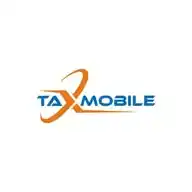
Taxmobile.Online
May 15, 2025 at 03:56 AM
Reinstating the 5% Telecom Excise Duty in Nigeria: Economic Consequences, Stakeholder Reactions, and Legal Pushback
1. Introduction
On May 8, 2025, the Nigerian Senate passed a bill reviving the controversial 5% excise duty on telecommunications services—three years after it was introduced in the Finance Act of 2020 under former President Muhammadu Buhari, and nearly two years after President Bola Ahmed Tinubu suspended its implementation due to inflationary concerns and its potential effect on digital inclusion.
2. Background: The Legal Basis of the Telecom Excise Duty
Excise duties are typically imposed under the Customs and Excise Management Act (CEMA) and the Finance Acts of successive years. The Finance Act 2020 extended excise duties beyond goods to include services—particularly those regulated by the Nigerian Communications Commission (NCC). In the 2023 Finance Act, this included prepaid and postpaid telecom services at a 5% rate. Though suspended in July 2023 by Executive Order, the recent Senate bill now aims to codify its return into law.
3. Implementation Scope
The excise duty is chargeable on:
All voice and data services (prepaid and postpaid) consumed within Nigeria.
Services consumed virtually or remotely from Nigeria, effectively extending liability to foreign digital service providers with Nigerian consumers.
Telecom operators, who are to collect and remit the duty based on the excisable value of services rendered.
4. Industry Response: Alarm Bells and Economic Implications
Telecom operators, under the umbrella of the Association of Licensed Telecommunications Operators of Nigeria (ALTON), are fiercely opposed to the excise duty, citing:
Tariff Increases: The 5% tax will force service providers to pass the cost to subscribers, effectively raising the price of voice and data.
Profit Margin Erosion: Many operators are already grappling with currency devaluation, energy costs, and limited infrastructure investment.
Tax Burden: ALTON reports that telecom operators currently pay 54 different taxes, making the sector one of the most heavily taxed in Nigeria.
Digital Inclusion Risks: Increased telecom costs could hinder Nigeria’s broadband penetration goals and leave vulnerable populations further behind.
Gbenga Adebayo, ALTON Chairman, warned: “There is no room to absorb this cost. It will ultimately land on the consumer and stall our industry’s fragile recovery.”
5. Consumer Backlash and Civil Advocacy
Consumer protection bodies, including NATCOMS and ATCIS, decried the excise duty as unjust and regressive. They argue:
Telecom services are essential utilities, not luxury goods.
The additional tax would push millions of Nigerians further into digital poverty.
There was inadequate stakeholder consultation before the Bill’s passage.
Subscribers lamented that average monthly data spending had already doubled in the last year due to inflation and devaluation. As expressed by Joy Esonwunne: “We’re at our breaking point. The government keeps raising the bar of hardship.”
6. Legal Action: A Test Case for Participatory Policy-Making
The National Association of Telecommunications Subscribers (NATCOMS) has filed a lawsuit at the Federal High Court in Lagos, challenging the legality and constitutionality of the excise tax. The matter is slated for hearing on June 11, 2025, before Justice Aluko of Court 7.
Key legal arguments expected include:
Violation of procedural fairness for lack of public engagement.
Possible breach of consumer protection under the Federal Competition and Consumer Protection Act (FCCPA).
Overlapping taxation contrary to the principle of tax equity.
7. Broader Policy Considerations
Experts warn that while government seeks to expand revenue sources, such short-term measures should not compromise long-term economic growth and digital innovation. Comparatively, excise duties are traditionally imposed on harmful or luxury goods (e.g., tobacco, alcohol, luxury cars)—not critical infrastructure like internet access.
Furthermore, the measure contradicts Nigeria’s Digital Economy Strategy and broadband expansion targets under the National Broadband Plan (2020–2025).
8. Conclusion and Recommendations
The reintroduction of the 5% excise duty on telecom services has reignited debates on tax fairness, digital rights, and participatory governance in Nigeria. As the country grapples with rising inflation and sluggish digital infrastructure development, policymakers must reconsider whether taxing access to communication services aligns with national development goals.
Policy Recommendations:
Suspend implementation pending outcome of stakeholder consultations and the ongoing litigation.
Conduct an independent impact assessment involving NCC, Ministry of Communications, and telecom operators.
Explore alternative revenue sources such as taxing luxury consumption, improving compliance in the informal sector, or enforcing digital tax rules for large foreign tech platforms.
Adopt inclusive fiscal policies that prioritize affordability, innovation, and access to digital services.
Olatunji Abdulrazaq CNA, ACTI, ACIArb(UK)
Founder/CEO, Taxmobile.Online
👍
1